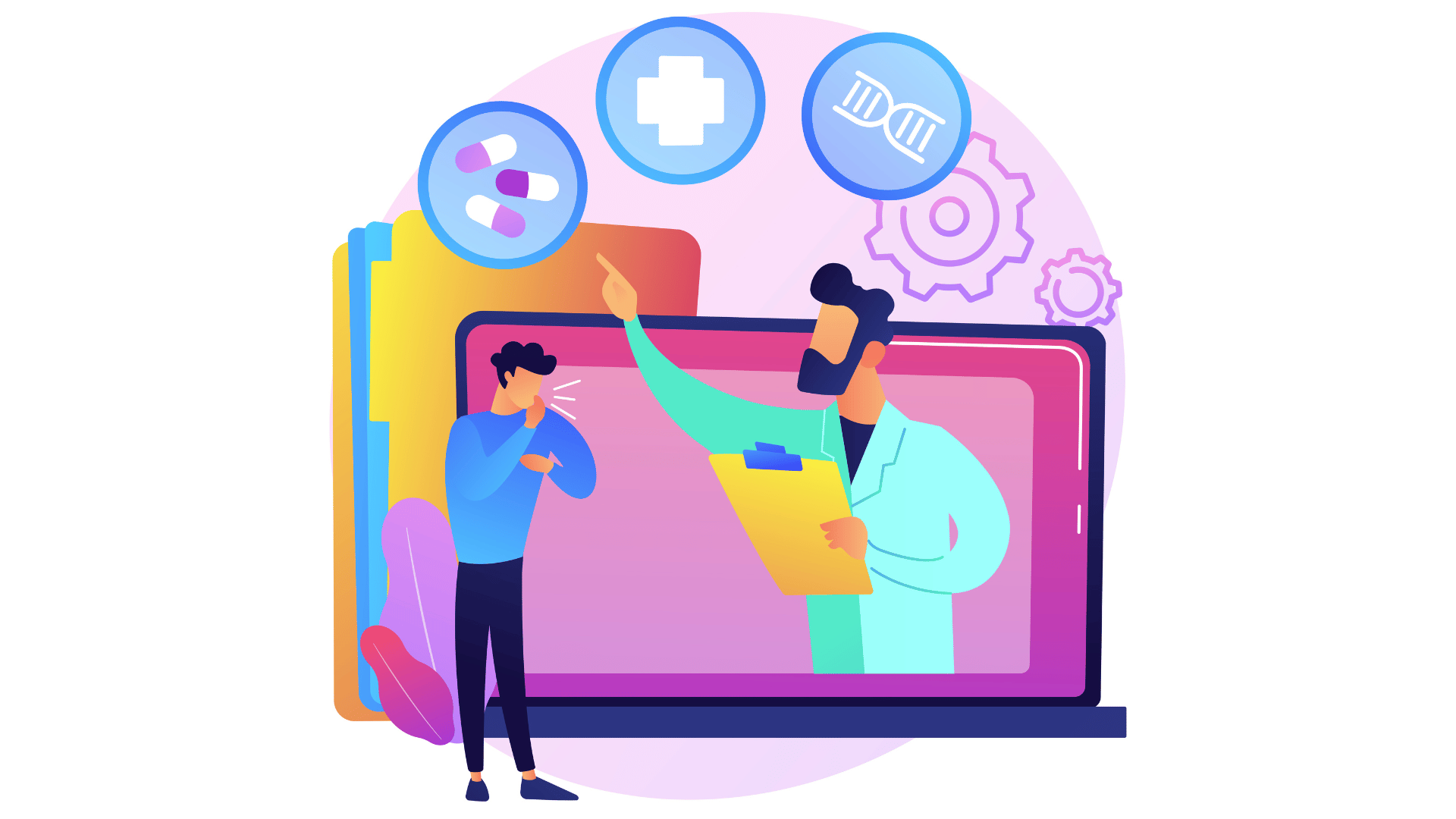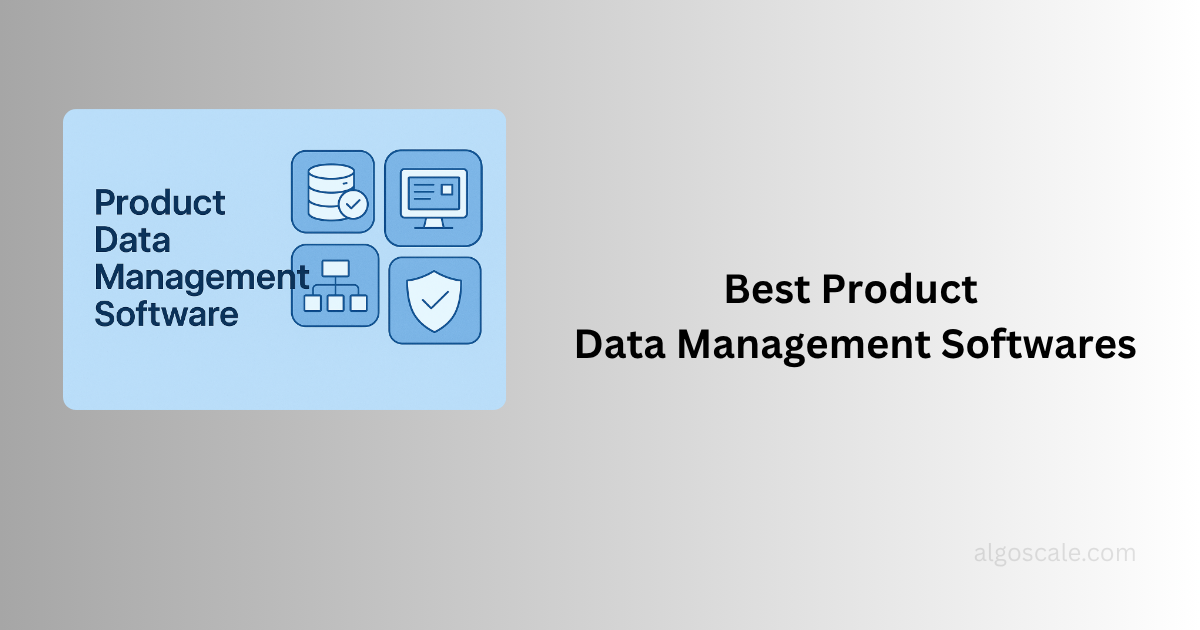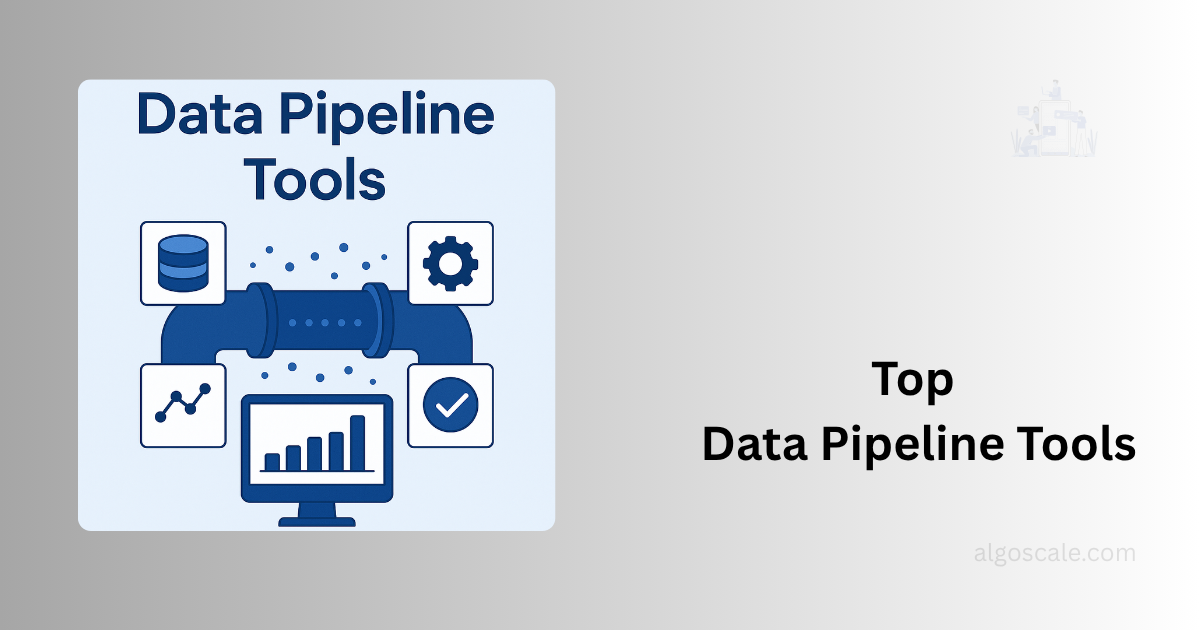In the past couple of years, Artificial Intelligence (AI) has become the most influential technology in the healthcare industry. From patient diagnosis to early risk identification to drug creation, there are several ways in which healthcare organizations can use AI and deliver more efficient patient care.
As the volume of healthcare data continues to grow, AI is all set to drive greater innovations across the patient care continuum. This is based on AI’s ability to deliver intelligent and proactive insights that inform medical decision-making.
Statistics reveal that AI in the healthcare market is anticipated to grow from $14.6 billion in 2023 to $102.7 billion by 2028, marking a CAGR of 47.6% during the forecast period. This statistic clearly indicates that in the next five years, AI will deeply penetrate the healthcare market with a majority of progressive healthcare institutes embracing its use.
That being said, AI adoption in healthcare is not without challenges. Factors like data quality and privacy or interoperability and integration of AI tools in the existing setup have deterred many healthcare organizations from seamlessly implementing AI into their workflows.
If your healthcare organization is also facing issues related to the implementation of AI in healthcare, we can help. Here, we will discuss some of the best ways to overcome barriers to AI adoption in the healthcare industry.
Identifying Barriers to AI Adoption in Healthcare
Despite the promise of AI in healthcare, there are still several barriers that are hindering its adoption. Here are some examples of the most common barriers to AI adoption in healthcare:
- Lack of data: AI models require large amounts of high-quality data to be trained effectively. However, healthcare data is often siloed, incomplete, or inconsistent, making it challenging to develop accurate AI models. For example, if a hospital’s electronic health records are incomplete or inconsistent, it will be difficult to train an AI model to accurately predict patient outcomes.
- Regulatory and ethical challenges: Several regulatory and ethical challenges must be addressed before AI can be widely adopted in healthcare. For example, there may be concerns about data privacy and security, as well as questions about who is liable if an AI model makes an incorrect diagnosis or recommendation. There are also concerns about the potential for bias in AI models, which could lead to unfair or discriminatory outcomes.
- Resistance from healthcare providers: Some healthcare providers may be resistant to adopting AI, either because they are unfamiliar with the technology or because they fear that it will replace their jobs. For instance, radiologists may be hesitant to adopt AI-powered imaging tools because they fear that the technology will replace their expertise.
- Technical challenges: Implementing AI in healthcare can be technically challenging. For example, integrating AI systems with existing electronic health records or other healthcare IT systems can be difficult, and may require significant resources and expertise. Additionally, AI models may require high-performance computing infrastructure to be run efficiently.
- Cost: Implementing AI in healthcare can be expensive, both in terms of acquiring the necessary hardware and software, as well as in terms of training and retaining skilled personnel to develop and maintain AI models. This can be a significant barrier for smaller healthcare providers who may not have the resources to invest in AI.
- Lack of standards: There is currently a lack of standards and guidelines for the development and implementation of AI in healthcare. This can make it difficult for healthcare providers to evaluate and compare different AI solutions, and can also hinder interoperability between different AI systems.
AI has tremendous potential to improve healthcare outcomes, but there are significant challenges that must be addressed before it can be fully adopted.
Lessons Learned from Early Adopters
There are several early adopters of AI in healthcare that have demonstrated the potential of this technology to improve healthcare outcomes. Let’s look at some notable examples:
- Always start by understanding the root problem
It is seen that many organizations become highly focused on the abilities of AI to predict accurate results. Consequently, they fail to define the context in which the technology is going to be utilized. Due to this, the results are always faulty.
It is important to first go into the root cause of the problem before implementing AI. Understand the problem down to the user level and then begin looking for a technology-driven solution. Be ready to deal with data bias
Data is at the core of every AI tool. In other words, data is crucial to power the AI algorithm. And if this data is bad or faulty, even the best algorithm will not be able to fetch you accurate results.
Often, data bias is very difficult to detect. Owing to its subtle nature, data bias does not show up at the time of AI algorithm testing. This bias may be tied up to a certain organization’s data, some protocol followed in the organization or even the AI developer.
When this happens, the AI algorithm is not able to get accurate results in real-time problems. So, it is important to dedicate sufficient time to studying the actual and verified data sets. Try to gather data sets from several different locations and sources to ensure greater accuracy.Have a solid plan of action in place
As we know, physician buy-in is a major challenge associated with AI adoption in healthcare. Several physicians across the world are apprehensive about AI as they see it as a threat to their autonomy and a potential source of errors.
So, if your AI algorithm is not tested and validated by the top physicians in the country, what will be its value? Well, nothing. Any source of information is only valuable if you have a plan of action to capitalize on the information.
So, make sure to have an effective model to execute the actionable information derived from your AI implementation.
These are the three most crucial lessons to be learned from the early adopters of AI in healthcare. Additionally, it is important to not get over-attached to the idea of AI implementation without first closely looking at your surrounding realities. Ensure your entire team understands how AI can serve as a complementary force without them becoming too dependent on it.
Moving on, let us look at some of the earliest adopters of AI in medicine.
Babylon Health
PathAI
GE Healthcare
Babylon Health is a UK-based healthcare provider that uses AI-powered chatbots to provide medical advice to patients. The chatbots ask patients about their symptoms and medical history and use natural language processing to generate a diagnosis and treatment recommendation.
PathAI is a US-based company that uses AI to analyze pathology slides and provide more accurate diagnoses of cancer. PathAI’s technology has been shown to improve the accuracy of cancer diagnoses, which can help to ensure that patients receive appropriate treatment.
GE Healthcare is a global healthcare technology company that has developed several AI-powered tools, including an AI-powered medical imaging system. The system uses AI to analyze medical images and provide more accurate diagnoses of diseases such as cancer and heart disease.
Strategies for Overcoming Barriers and How Algoscale Can Help
Despite the many uses of AI in healthcare, there are still several barriers that hinder its widespread adoption. Let us look at some simple strategies that can be employed to overcome these barriers and promote the adoption of AI in healthcare.
Addressing Technical Challenges:
As discussed above, one of the major barriers to the adoption of AI in healthcare is technical challenges such as data quality, interoperability, and scalability. To overcome these challenges, healthcare organizations can:
- Invest in data management systems that can collect, store, and manage high-quality data in a structured format. (Read to know more)
- Develop interoperability standards and protocols that enable the seamless exchange of data between different healthcare systems and providers.
- Leverage cloud-based infrastructure to scale up their AI initiatives and handle large volumes of data.
- Addressing Ethical Concerns:
AI applications in healthcare raise ethical concerns such as privacy, bias, and transparency. To overcome these concerns, healthcare organizations can:
- Establish ethical guidelines and standards for the development and deployment of AI applications.
- Use explainable AI algorithms that provide transparent and interpretable results.
- Ensure that AI applications are designed to be fair and unbiased, by using diverse data sets and testing for bias.
Addressing Legal and Regulatory Issues:
Legal and regulatory issues such as data privacy and security regulations can create barriers to AI adoption in healthcare. To overcome these issues, healthcare organizations can: - Comply with relevant regulations and standards such as HIPAA and GDPR, and ensure that data is stored and transmitted securely.
- Partner with legal and regulatory experts to navigate complex legal and regulatory frameworks.
Addressing Resistance from Healthcare Professionals and Patients:
Resistance from healthcare professionals and patients can be a significant obstacle to the adoption of AI in healthcare. To overcome this resistance, healthcare organizations can: Provide education and training to healthcare professionals to build their confidence and skills in using AI applications.
Involve patients and their families in the design and development of AI applications to increase their acceptance and engagement.
Communicate the potential benefits of AI applications to patients and healthcare professionals, such as improved accuracy, efficiency, and outcomes.
By addressing these issues, healthcare organizations can promote the adoption of AI and improve the quality of care.
Here’s how Algoscale a Healthcare client streamlines their supply chain.
Algoscale developed a multi-module integrated platform for the healthcare supply chain platform to provide better visibility and reduce expenses associated with erroneous inventory counts. A central data warehouse was created to solve product and attribute standardization, and a Spend Analytics dashboard was developed to assist the customer in gaining visibility into their expenditure and managing it appropriately to reduce costs.
The solution provided real-time insights to hospitals and supply chains in terms of price impacts, revenue consolidation, and product-wise price trends. The solution also helped improve supplier collaboration, and the out-of-the-box spend analytics solution provided up to a 50% reduction in time-to-market. The platform was built using OCR technology, Node.js, Angular, Python & Data Science Libraries, MySQL, and Elasticsearch, and deployed on a Microservices Architecture in the AWS Cloud in a SaaS Model.
Click here to learn more.
Algoscale is a leading Healthcare IT Services Provider that can help you build advanced AI algorithms for your healthcare organization. Our proficient team of AI developers can build and deploy a range of AI tools to help you deliver exceptional patient care. We can also help you build a data management systems that can collect, store, and manage all your healthcare data in a structured format. This will ensure accurate and efficient results. You can get in touch with our reps to schedule a free consultation today.











